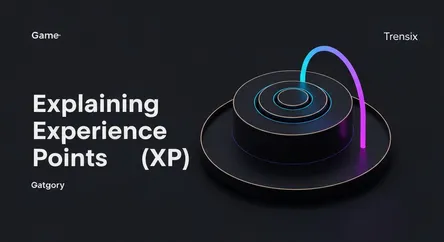Game
Explaining Experience Points (XP)

Discover what experience points (XP) are, how they drive player progression, and why this core mechanic is a staple in modern game design.
What is it?
Experience points, commonly abbreviated as XP, are a fundamental gameplay mechanic used to quantify a player's progression. In most games, players earn XP by completing tasks, defeating enemies, discovering new locations, or finishing quests. Accumulating a certain amount of XP results in "leveling up," which typically improves a character's attributes, such as health or strength, and often unlocks new skills or abilities. This system creates a tangible measure of a player's achievements and growth within the game's world, serving as a core reward loop.
Why is it trending?
The concept of XP has transcended its role-playing game (RPG) origins to become a staple in nearly every genre, from shooters to strategy games. This trend is driven by its effectiveness in creating a compelling feedback loop that keeps players engaged. The constant, incremental rewards provide a clear sense of accomplishment and make gameplay feel productive. Developers use XP systems to structure content, guide players, and extend the lifespan of a game. Its adaptability has also led to its use in "gamification," applying game-like rewards to real-world applications to motivate users.
How does it affect people?
Experience points tap into a powerful psychological desire for mastery and achievement. The visual of an XP bar filling up provides immediate, positive feedback, triggering a sense of satisfaction. This system breaks down a game's long-term goals into smaller, manageable, and rewarding steps, which can make daunting challenges feel approachable. For players, leveling up fosters a feeling of empowerment and personal investment in their character's journey, making it a highly effective tool for maintaining long-term player engagement and satisfaction.